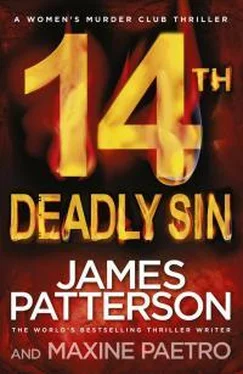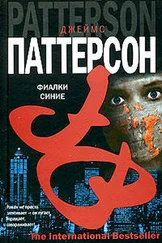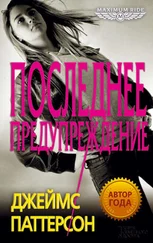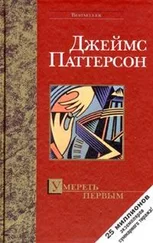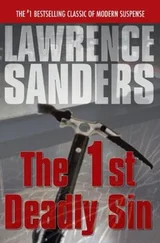Swanson stopped me from going on. He said, “We get it, Boxer. You ask, we answer. You need a handle on this, and we’re counting on you.”
Conklin checked that the camera was on, then sat down next to me, saying, “We’re recording this, just because.”
Vasquez clenched his fists and said, “Calhoun wasn’t dirty. He was a good person. He was a good cop.”
I nodded. And Conklin said, “Tell us whatever you know about him. We’ll ask questions as they come up.”
Swanson sighed and said, “Calhoun transferred in from LA Vice about two years ago with a good reputation. He was partnered with Kyle Robertson, who joined Robbery, don’t remember when offhand, but before that he was in uniform since the Flood. You should talk to Robertson. They were close.”
I nodded. We were seeing Robertson in a little while.
Vasquez said, “Calhoun was a good kid. He wanted to do good in the job. If I had to fault him, I would say he was a little bit overenthusiastic.”
“Meaning what?” I asked.
“He could be seen as not taking things as seriously as an older guy with more years on the job. Or maybe he wasn’t hardened, yet. Whatchacallit? He wasn’t jaded. Either way, Calhoun had a future on the force.”
Conklin asked, “How’d his mood been lately? Was anything bothering him?”
“I didn’t notice anything,” said Swanson.
“Did anyone have it out for him?” I asked. “Anyone he may have busted?”
Swanson said, “When I had dinner at their house last Wednesday, he was in a good mood. He was talking about Little League and how he and Marie were saving up for the boys’ college in a five-two-nine fund. Regular dinner talk. With photos.”
The interview went on for another half hour. By the time the empty coffee containers were in the trash, I had a few leads to follow up and no connections that would explain why Calhoun had been tortured or what anyone could have wanted from him.
Conklin and I met with the long-timer, Calhoun’s partner Kyle Robertson. Along with Calhoun, we’d met Robertson during the canvass after Maya Perez had been killed.
Robertson was maybe fifty, but he looked older. His face was heavily lined and his hair was gray, thin, combed over. He was eager to help, but could only say he was torn up by the killings. That nothing Calhoun had ever said to him would lead him to think he had anything worth killing him for.
“It’s a complete mystery,” Robertson said. “I can’t make a thing out of it.”
Conklin said, “Narco has been working some street crimes, looking for some cops who might be taking money and drugs off dealers. Could Calhoun have been a part of that?”
Robertson shook his head vigorously.
“He was just a regular guy. If he hadn’t become a cop, he could have been a firefighter or a high school coach. I never heard him talk about money. He smoked cigarettes, but that’s the only addiction he had. Ask me, this bloodbath was entirely senseless. Maybe the killers went to the wrong house and killed the wrong people. Crazier things have happened.”
CHAPTER 55
CONKLIN AND I went to Brady’s office with our fat notepads and thin theories.
We had interviewed the Calhouns’ neighbors, who had been sleeping last night when the Calhouns were being tortured and shot. They’d seen nothing and heard nothing and were completely shocked and very frightened.
We had also interviewed cops who’d worked with Calhoun, and they, too, were in utter disbelief. Calhoun was a good cop. He loved his job, maybe too much. They chalked that up to his youth and romantic nature. We told Brady that the three cops who knew him best, Swanson, Vasquez, and Robertson, had no clue as to why he and his family would have been tortured and slain.
Brady listened to what we told him, then said, “Here’s where I’m at. In the last two weeks, there’ve been more robbery and narcotics-related homicides than in the entire last year.”
He put a piece of paper on the desk and turned it so Conklin and I could see his handwritten list of the crimes that had taken place in our division in the last two weeks. Brady stabbed the list as he read it out loud.
“The first two check-cashing-store holdups, one fatality.
“A mercado robbery with a murdered shop owner.
“Another check-cashing-store holdup, and this time, there are three dead, would-be robbers in SFPD Windbreakers. Turns out, they’re not cops. They’re idiots, copycats who’ve heard about the Windbreaker cops but don’t know how to pull off any kind of robbery.
“Here. A takedown of a drug factory, seven dead. Possible sighting of a Windbreaker cop.
“This is from Narcotics,” Brady said. “Six drug dealers, that they know about, have been shot and robbed in crack houses and on the street. The word is that cops are doing it. It’s a random pattern, but a pattern nonetheless.”
Conklin and I nodded like bobbleheads.
Brady went on.
“Probably a shitload of drugs was stolen from Wicker House. Could have been worth millions. Somebody could be in a rage about that. Makes me think an organized crew has put on SFPD Windbreakers as an inside joke.
“And the joke is working. The crew disguises themselves as cops. And they’re into drug house takedowns and cash-rich robbery opportunities. It’s almost like this is an act of war, cops versus drug thugs. And I wonder if Kingfisher is somehow involved in this. He has his fingers in everything. He can be very violent. Read up on him. Sickening stuff. Torture for fun. Sadism. Keep Kingfisher in mind.”
Kingfisher was a notorious drug lord, said to be based in Southern California, though no one knew for sure. But evidence of his manufacturing and distribution enterprise was widespread. Was this big-time player somehow involved in small-time takedowns in San Francisco?
Brady wasn’t done. He pushed his fingers through his hair. He looked at his computer screen and pressed some keys.
I thought maybe he’d forgotten about us. But then he was saying, “Maybe I’m just trying to make sense of unrelated incidents by making lists, turning the pieces around, hoping they’ll fit. Or maybe there’s something happening here that we can’t quite see.
“We don’t stop until we know.”
PART TWO
CHAPTER 56
COURTROOM 5A WAS small, paneled in cherry-wood with matching cherry benches, tables, and chairs. The judge had turned to speak to his clerk. Behind him was the golden seal of the State of California flanked by two flags: the Stars and Stripes and the California state flag.
The room was full, but court was not yet in session. Yuki and her second chair, Natalie Futterman, sat behind their counsel table. Yuki skimmed the notes in front of her, rehearsing her opening lines in her mind like a mantra.
Beside her, Natalie whispered, “I can’t wait .”
Yuki said, “I can. I may be a pit bull, but he’s a lion, Nat. An angry one.”
Natalie said, “New thought for a new day.”
“Do not tweet that,” Yuki said.
Yuki wished she felt as excited as Natalie. Her eager second chair was a forty-six-year-old recent graduate of law school. Her kids were out of the house. Her husband had left her. And Natalie finally had the degree in law she’d put off twenty-five years ago. She was sharp, bookish, organized, had passed the bar on the first try, and was ready for prime time. Or as Natalie had put it, “You can only learn so much in a classroom.”
Natalie had nothing to lose but her novice status.
Yuki, on the other hand, had a pretty substantial reputation at stake, and if she lost this case, she would be known for it: Kordell v. City of San Francisco. Yuki Castellano. She sued the SFPD and they destroyed her.
Читать дальше
